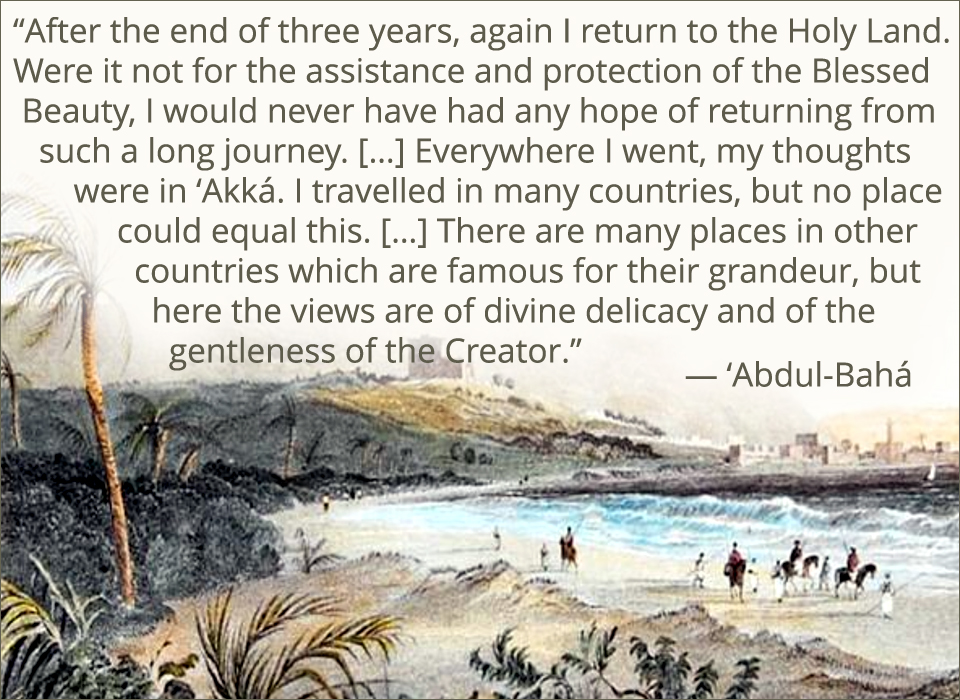|
|
|
Episode 9 November 2, 2021 The Staff of Life in Darkest Night ‘O vessel, what is it that makes you sway so gracefully?’ — Bahíyyih Khanum, on sighting ‘Abdu’l-Bahá’s ship in the harbour at Haifa.  The Master was finally coming home. The whole of the Bahá’í community in the region was in a whirlwind of activity as they excitedly prepared for His return, though reports were that He was frail and exhausted from His long voyage. The members of the household, overseen by His sister, Bahíyyih Khanum, were preparing His favourite dishes with gusto, and new clothes for the Master were hidden away for fear that should He find that He had extras, He would give them away. On December 5, the ship carrying the Master finally came into view in Haifa harbour, which brought indescribable joy to the family, the believers and the visiting pilgrims. ‘Abdul-Bahá was so fatigued that after embracing the family, He went directly to His room for a little rest, but soon returned and addressed those gathered: “After the end of three years, again I return to the Holy Land. Were it not for the assistance and protection of the Blessed Beauty, I would never have had any hope of returning from such a long journey. […] Everywhere I went, my thoughts were in ‘Akká. I travelled in many countries, but no place could equal this. […] There are many places in other countries which are famous for their grandeur, but here the views are of divine delicacy and of the gentleness of the Creator.” ‘Abdu’l-Bahá and His wife Munírih Khanum later made a trip to Galilee and to the hot springs in Tiberias for some much-needed rejuvenation. They stayed a month, and though there were not many people initially, it wasn’t long before throngs of people came to visit the Master. He also visited Adasiyyih, a farming community near the Jordan Valley whose land He had bought early in the 20th century, near where Christ had once fed the multitude with bread and fish. Upon their return, the Master told the welcoming household: “It is a place of seclusion and contemplation. It is a spot hallowed by the presence of His Holiness Christ. Often He walked around the shore of the Sea of Galilee, and as He walked, He taught His disciples. As I walked the shore, those immortal deeds were brought back to my memory.” The peace and quiet of home did not last, however. On 28 June 1914 Archduke Ferdinand of Austria and his wife were assassinated in Sarajevo, Bosnia. The very next day, ‘Abdu’l-Bahá sent all Western pilgrims and some Iranian Bahá’ís home for their safety, and a month later, World War I began in earnest.
In August 1914, the Master accepted an invitation from Shaykh Salih,
the head of the Druze community outside of Haifa, to move the Bahá’ís
and their children to safety of the village of Abu Sinan. Some 140
adults and as many children were hosted by the Druze, a sect that
blended Judaism, Christianity and Islam. ‘Abdu’l-Bahá, did not remain,
commuting between Abu Sinan and Haifa-‘Akká in order to help the people
in both communities. |
|
|